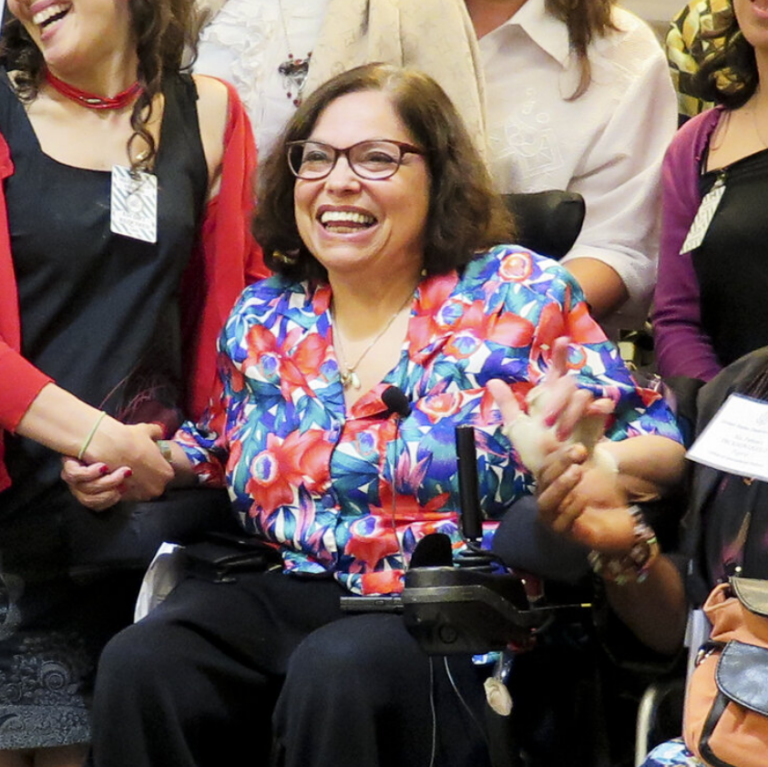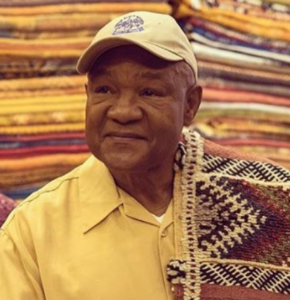Judy Heumann, a trailblazer in the disability rights movement and often referred to as the “mother” of the movement, passed away on March 4, 2023, in Washington D.C
Her team confirmed the news of her demise on social media, while her website, judithheumann.com, also shared a statement on her passing.
Throughout her life, Judy Heumann was at the forefront of major disability rights demonstrations, advocating for the rights of people with disabilities. She helped spearhead the passage of disability rights legislation, and founded national and international disability advocacy organizations.
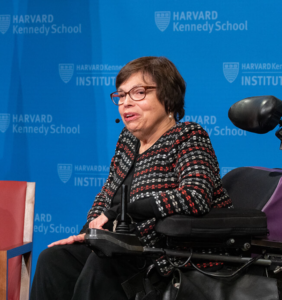
Also Read: The Impact of Tate Makgoe’s Death on South Africa’s Education System
Table of Contents
Judy Heumann (Disability Rights Movement): Death Explained
Moreover, Heumann held several senior positions in the federal government, co-authored her memoir, Being Heumann, and its young adult version, Rolling Warrior. In 2020, she was featured in the Oscar-nominated documentary film, Crip Camp: A Disability Revolution.
As soon as news of her passing broke out, tributes for Judy Heumann flooded social media from people around the world, expressing their admiration for her work and her unwavering commitment to fighting for disability rights.
The Legacy of Judy Heumann
Judy Heumann’s legacy lives on through the many lives she has touched and the significant contributions she made to the disability rights movement. Her advocacy work paved the way for many who came after her and her unwavering determination has inspired generations to fight for equality and inclusion for people with disabilities.
In conclusion, Judy Heumann will be remembered as a true pioneer of the disability rights movement, whose tireless efforts and accomplishments will continue to have a lasting impact on the lives of people with disabilities for generations to come.
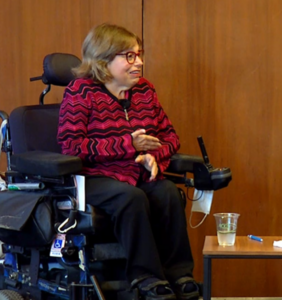
Judy Heumann (Disability Rights Movement): Bio
Judith Heumann is a renowned disability rights activist whose life and work have been an inspiration to countless individuals around the world. Born in Brooklyn, New York in 1947, Heumann contracted polio at the age of 18 months, which left her with a lifelong disability.1
Despite facing discrimination and exclusion, Heumann has dedicated her life to advocating for disability rights, and her tireless efforts have helped to shape policies and legislation both nationally and internationally.
Early Life and Education
Growing up in a time when people with disabilities were often segregated and denied access to education, Heumann and her family had to fight for her right to attend school.
She eventually attended the New York City public school system and went on to earn a Bachelor of Arts degree from Long Island University and a Master’s degree in Public Health from the University of California, Berkeley.

Activism and Advocacy
Heumann’s activism began in the late 1960s and early 1970s, when she became involved in the civil rights and anti-war movements. In 1970, she founded the Disabled in Action organization, which was one of the first disability rights groups in the United States.
Heumann also played a key role in the 1977 sit-in protest at the San Francisco Federal Building, which led to the eventual signing of regulations that prohibited discrimination against people with disabilities in federally-funded programs.
In the 1980s, Heumann served as the Director of the Department on Disability Services for the City of Berkeley, where she worked to improve access to services and programs for people with disabilities. She also served as the World Bank’s first Advisor on Disability and Development, where she helped to integrate disability issues into the bank’s projects and policies.
Thank you to everyone who has followed and supported Judy throughout her lifetime of advocacy. May her memory be for a blessing.https://t.co/BzQSXux9bj
— Judy Heumann (@judithheumann) March 5, 2023
International Impact
Heumann’s work has had a significant impact on disability rights both in the United States and around the world. She has served as a Special Advisor for International Disability Rights at the US State Department, where she helped to develop and implement policies related to disability rights.
In 2010, President Barack Obama appointed Heumann as the first Special Advisor for International Disability Rights at the State Department, a position she held until 2017.
Heumann’s advocacy has also had an impact on the global stage. In 1981, she became the first wheelchair user to serve as a delegate to the United Nations, and in 2012, she was named as one of the world’s most influential people by Time magazine.
Legacy
Heumann’s legacy is one of resilience, determination, and advocacy. Her work has helped to break down barriers and open doors for people with disabilities around the world.
Her advocacy has helped to shape policies and legislation both nationally and internationally, and her efforts have inspired countless individuals to pursue their own activism and advocacy.
Judith Heumann’s life and work are a testament to the power of advocacy and activism. Despite facing discrimination and exclusion, she has dedicated her life to fighting for disability rights and has helped to shape policies and legislation both nationally and internationally. Her legacy serves as an inspiration to all those who are committed to fighting for a more just and inclusive world.

Also Read: Keith Sayres Death And Obituary: How Did Survivor Contestant Die?
Judy Heumann (Disability Rights Movement): Life Story
Judith Heumann, a renowned disability rights activist, was born on December 18, 1947, in Philadelphia, Pennsylvania. Her parents were German immigrants who fled to the United States during Hitler’s rise to power, and both of them became orphans due to the Holocaust.2
Growing up in Brooklyn with her brothers Joey and Ricky, Heumann contracted polio at just eighteen months old, which left her a quadriplegic and confined to a wheelchair.
Despite facing numerous challenges from an early age, Heumann remained determined to succeed. Her parents refused to institutionalize her, even though it was the norm at the time, and Heumann began her education at nine years old after being denied entry to kindergarten due to her disability.
Struggles and Success
Heumann received two and a half hours of home instruction a week until the age of nine. She then attended special education classes in public school through New York City’s Health Conservation 21 program. In high school, Heumann faced social exclusion and discrimination from non-disabled students, who viewed her as “different.”
Despite these challenges, she graduated from Long Island University with a BA in speech and theater, minoring in education in 1969, and later earned an MA in public health from the University of California at Berkeley in 1975.
View this post on Instagram
Summer Camp: A Turning Point
The summer after Heumann began the Health Conservation Program 21, she went to a summer camp for disabled children, which she describes as the beginning of her “ten-year love affair with camp.”
The experience provided Heumann and other children with disabilities the opportunity to experience newfound freedom. They were able to party, play rock music, and have fun without limitations, which was a stark contrast to their everyday lives.
Overcoming Obstacles and Fighting for Disability Rights
Heumann faced numerous challenges throughout her life, but her experiences fueled her passion for advocating for disability rights. In her memoir, “Being Heumann,” she recounts her struggles with inaccessible public transportation, limited job opportunities, and the lack of accessibility for disabled individuals.
She became a leading advocate for disability rights in the 1970s and was a key player in the fight for the passage of the Americans with Disabilities Act (ADA) in 1990.
Judith Heumann’s life is a testament to the resilience and strength of the human spirit. Despite facing discrimination and exclusion from society, she remained dedicated to achieving her goals and advocating for disability rights.
Her impact on the disability rights movement has been immeasurable, and her legacy will continue to inspire future generations of activists.
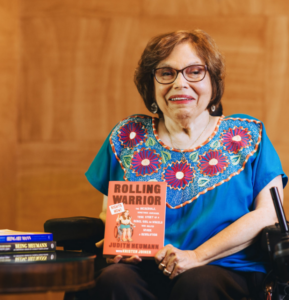
Judy Heumann (Disability Rights Movement): As a Teacher
- It was always Judy Heumann’s dream to become a teacher. She pursued the appropriate coursework, minoring in education, and even passed the oral and written exams.3
- However, the New York City Board of Education rejected her application for a teaching license, citing “paralysis of both lower extremities, sequela of poliomyelitis” as the reason for not hiring her (Being Heumann 51).
- Heumann believed that the Board of Education had discriminated against her because of her disability.
- Fortunately, a disabled friend who worked for The New York Times was able to persuade a Times reporter to cover Heumann’s story. The resulting article, titled “Woman in Wheelchair Sues to Become Teacher,” generated public support for her cause.
- With the assistance of Roy Lucas from the James Madison Constitutional Law Center, Heumann filed a lawsuit against the Board of Education in federal court, claiming that she had been discriminated against on the grounds of her disability.
- The judge presiding over the case was Constance Baker Motley, the first Black federal female judge who had experienced discrimination herself (Ted Talk 2016).
- When it became apparent that the Board of Education would lose the case, they settled out of court and granted Heumann her teaching license.
- For three years, Heumann taught at P.S. 219, the school she attended as a student. This was the first time that both disabled and nondisabled students at P.S. 219 had a teacher with a disability, and it was a significant step forward for the inclusion of disabled individuals in the education system.
- After the legal victory, Heumann and her colleagues established Disabled in Action, an organization “run by and for disabled people.” The group aims to empower people with disabilities and promote inclusivity in all aspects of life.
- Judy Heumann’s fight to become a teacher highlights the struggles that disabled individuals face in gaining equal opportunities in education and employment.
- Her legal victory paved the way for greater inclusion and equality for individuals with disabilities, and her work with Disabled in Action continues to make a positive impact.
- It is essential to recognize and appreciate the efforts of individuals like Heumann who have fought for the rights of disabled people and promoted a more inclusive society.
Judith Heumann
Judy Heumann (Disability Rights Movement): Net Worth 2023
Marilyn Heumann dedicated her life to advocating for disability rights. Her work inspired many, but her earnings remained private. While she never publicly disclosed her net worth, sources suggest it was around $1.52 million. It’s possible that her actual net worth was slightly more or less than this estimate, as she chose not to reveal this information.
Heumann’s work was focused on advocating for disability rights, rather than earning personal income. However, she did receive compensation for her public speaking engagements in the form of speaking fees and honorariums.
In this article, we’ll take a closer look at Marilyn Heumann’s impact on the disability rights movement and how her work continues to inspire others today.
Also Read: Roman Kostomarov Hospitalized 2023: Death Hoax- Olympic Champion Is Critical Condition
